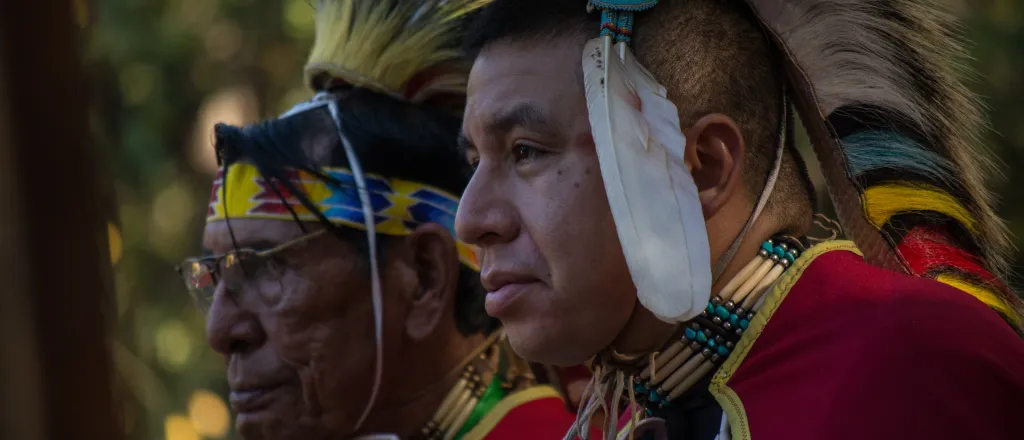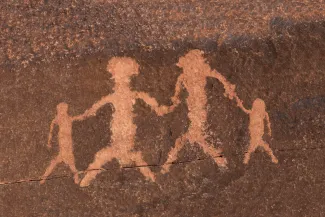
New campaign launched in honor of Native American Heritage Month
© ~UserGI15632746 - iStock-579416018
Click play to listen to this article.
November is Native American Heritage Month, and the American Indian College Fund has launched a new campaign called “You Can Do Something” in an effort to reframe how people in Colorado and across the U.S. understand history, power, and culture.
NancyJo Houk, College Fund chief marketing and development officer, said while Native people live in all parts of America, they’re frequently not seen or heard. She said the campaign spotlights the many contributions made by Native people beyond their iconic artworks.
"There are also some great scientists who have developed and produced really great things," she explained. "The original regenerative farming, the three sisters crop planning, rocket technology, and the patterns of our ecosystem - all of that Native people have influenced hugely."

The campaign launched with the premiere of “What You Pass On,” a Native-produced short film designed to challenge what viewers were taught, and to inspire action through an online hub at ‘Indigenous-everyday-dot-com.’ Houk said while no one can do everything, everyone can do something. For example, people can listen to Native voices through music and podcasts, support Native food and restaurants, read Indigenous authors, and buy from Native-owned businesses.
Houk noted that one common misperception about Native Americans in Colorado is that they get free education. While Fort Lewis College does offer tuition waivers for Native residents, according to their website only families with incomes below $70,000 a year qualify. Houk said another misconception is that tribes have achieved great wealth through their popular casinos.
"There are almost 600 federally recognized tribes, and just a few of them have really successful casinos," she continued. "So tribal nations are not actually getting rich through the casinos."
America’s history, including the many harms suffered by Native people after European settlers arrived on the continent, cannot be rewritten. But Houk said we can choose what to pass on to those around us, and the choices we make today will shape the future, and believes the history of Native people in the U.S. is ultimately a story of hope.
"Native people have been around for over 12,000 years in the United States," she said. "And I think that’s a testament to their resiliency and their resourcefulness. And I think that we can all really learn a lot from that, especially now."

















